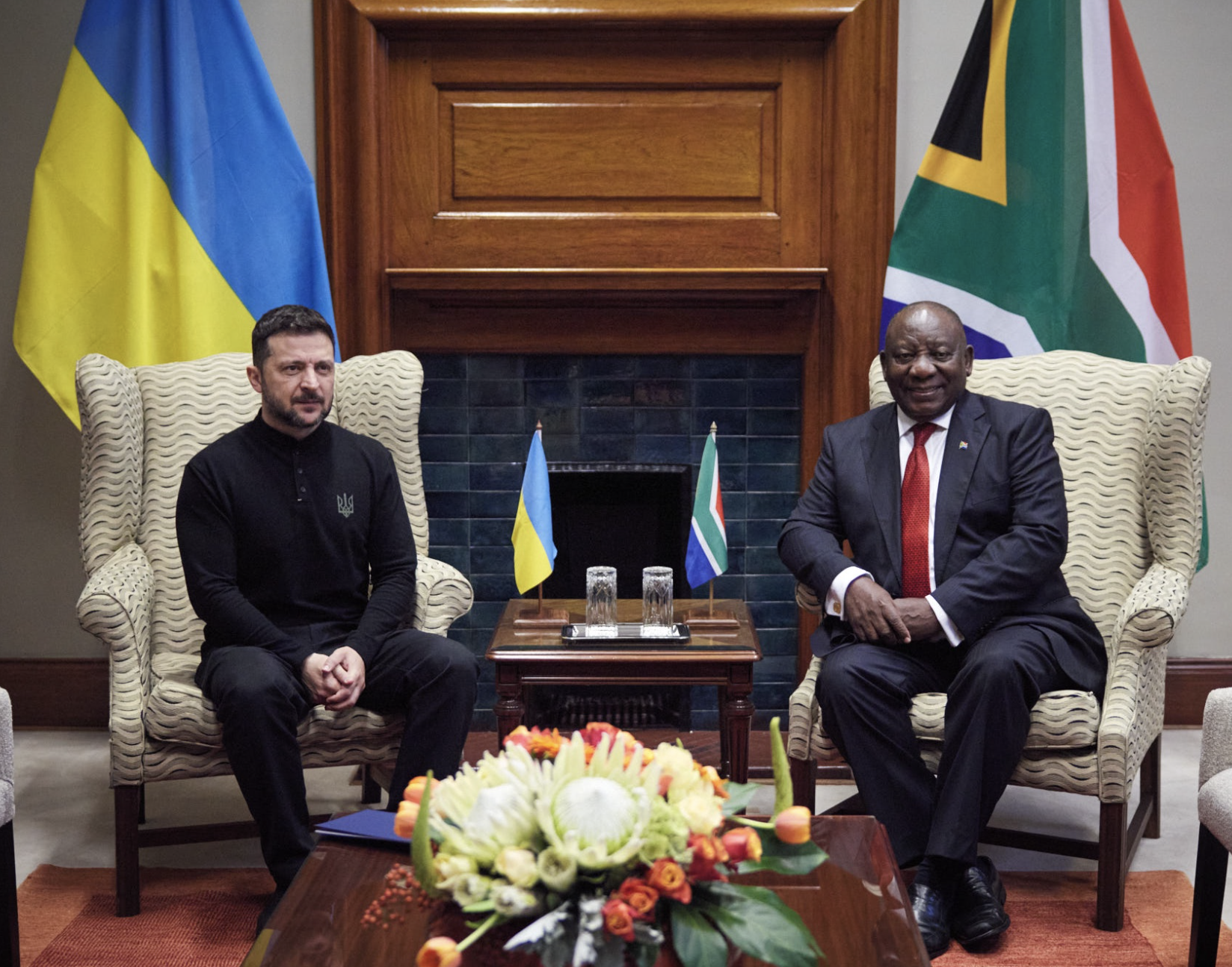News
No beating about the Ukrainian Bush will Solve Tshwane’s Washington Problem
If South Africa wants to restore its relations with Washington, it needs to address the substance at the root of the bilateral US-SA problem.

Former Director, The Brenthurst Foundation

Former Research Director, The Brenthurst Foundation

President Cyril Ramaphosa’s meeting with Ukrainian President Volodymyr Zelensky in Tshwane this past week is to be welcomed. It may even show that South Africa is finally moving away from years of blind loyalty to Russia’s Vladimir Putin in favour of a more balanced approach to the invasion of Ukraine.
Ramaphosa spoke with US President Donald Trump ahead of the meeting to signal to the US that South Africa wants to be a constructive player on the global stage.
More pertinently, Ramaphosa is now facing the embarrassment of hosting a G20 meeting boycotted by the US, which is taking over the organisation’s presidency from South Africa at the end of the year.
And thousands of jobs — mostly in unionised sectors — are set to be lost unless tariffs can be staved off and the Agoa trade programme maintained. Ramaphosa’s base is built on his strong relationship with the unions, and he does not want to be an agent of further deindustrialisation.
This change in posture has come about following months of fumbling the relationship with a defiant stance that was best illustrated by the ill-considered comments of, first, Ramaphosa himself in his State of the Nation of Address when he stated with regard to Washington that “We will not be bullied”, and by South Africa’s former ambassador to Washington, Ebrahim Rasool, among other senior ANC leaders who appeared willing to sacrifice the US-SA relationship on the altar of populist rhetoric.
However, it would be a mistake to read too much into this “reset”.
Ramaphosa may be presenting a new face to the world, but the ANC remains doggedly committed to a foreign policy which seeks to undermine the West and build a new power bloc with Russia and China as the leading components under the BRICS rubric.
And, at home, the ANC continues to act as though it is the sole holder of power despite being forced into a coalition after dropping well below 50% in the last election. It attempted to ram through a VAT increase despite the opposition of almost all other parties and was forced to back down when a humiliating court ruling loomed.
Instead of clinging to its old liberation movement playbook, the ANC would do well to reinvent itself as a modern political party capable of navigating the fraught domestic and global environments with the best interests of the country — and not its cadres — at heart.
Strategic goal
Zelensky visited South Africa with a clear strategic goal: Establish an African diplomatic ally to help offset Russian influence on the continent, and build a case for Ukraine that strengthens its negotiating position not only with respect to Moscow but increasingly the US.
It is questionable whether South Africa is the best means to achieve this, the attempt at a reset notwithstanding.
Presumably, the strategic thinking — presuming there is strategic thinking — in the Union Buildings is to try to build a bridge with Zelensky and parlay that into influence on the peace talks, improving South Africa’s position with Washington in the process. Ultimately, this will, of course, be at the cost of Zelensky and Ukraine, necessary and useful fools in the wider South African game.
However, this premise overstates South Africa’s limited leverage. It cannot offer security guarantees, assistance with post-negotiation peacekeeping or economic help for a post-war recovery. For a limited time — only until the G20 caravan leaves town in December — South Africa may punch above its weight, but only if it plays the game well.
The areas of commonality are also few and far between.
The only thing (apparently) that Ukraine, South Africa and the Trump White House appear to agree on is that the war should not have occurred, even though the South African government was remarkably silent in the face of Russian aggression, refusing to hold Moscow accountable and worse, mounting countless displays of solidarity, from joint naval exercises to ubiquitous grinning photo opportunities with the Russian leadership.
Tshwane will compromise its reputation still further if it is seen to support what Trump imposes and has no leverage whatever to ameliorate it. In the end, Ramaphosa is talking to Trump through Putin, Zelensky is talking to Trump through Ramaphosa, and Trump is not listening to any of them.
If South Africa wants to restore its relations with Washington, it needs to go far deeper and address the substance at the root of the bilateral US-SA problem.
First, it needs to cut a deal on Starlink, as part of a wider deal in opening up the economy to investors free from statism and race stipulations.
Second, it needs to step back on its singling out of Israel for genocide charges at the International Court of Justice and, as a first step, reinstate ambassadors in both Israel and South Africa.
Third, it needs to cut a reciprocal US-SA trade deal.
There is no amount of beating about the Ukrainian bush that is going to solve this foreign policy conundrum.
This article originally appeared on the Daily Maverick


